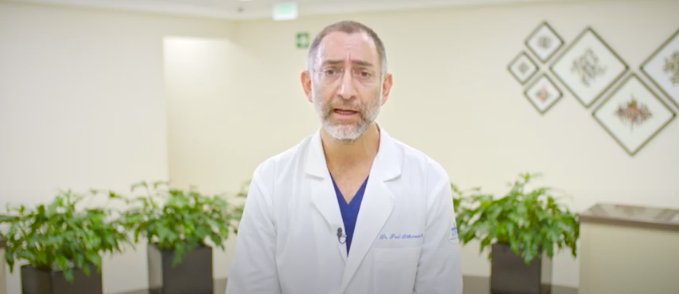It is estimated that in Mexico around 40 million people may have some type of sleep disorder, negatively impacting their quality of life and that of their families.
Dr. Paul Shkurovich Bialik, a neurologist at the ABC Medical Center, says that sleep allows the body to restore some functions and recover the balance altered during activities while awake. Suffering from a sleep disorder is a condition that makes it difficult to obtain the sufficient quantity and quality of sleep necessary to restore balance in our bodies.
Sleep disorders can be mainly classified into two types, says Dr. Shkurovich.
- Dyssomnias.
- Parasomnia.
Dyssomnias
This category corresponds to states that make it difficult to fall asleep, maintain, or deepen sleep.
- Insomnia. It is the difficulty to fall asleep and deepen sleep, preventing reaching the restorative stage. It can be divided into sporadic insomnia, which does not represent a serious medical problem, and in chronic insomnia where the patient has suffered from it for at least three months.
- Snoring. The vibration in the airway causes noise, this can wake up the person who suffers from it, as well as the people with whom they live.
- Obstructive sleep apnea. It happens when gravity affects the soft tissue of the airway through which we breathe, resulting in partial or complete obstruction of the airflow and causing breathing problems during sleep.
- Narcolepsy. It is a state of drowsiness that prevents us from functioning properly when we are awake. There are cases where it can be accompanied by other manifestations such as sleep paralysis.
Parasomnia
Within this category, motor events occur that accompany some stages of sleep and tend to disrupt sleep continuity.
- Sleepwalking. Event in which the patient can get out of bed or even perform complex actions such as eating or talking on the phone.
- Nightmares. They are distressing dreams, frequently the person who suffers from them wakes up very distressed and remembers the whole dream clearly.
- Night terror. More frequent condition in children, who usually get up suddenly and extremely agitated with a violent behavior but, despite the alteration, they cannot remember the reason for waking up.
- Sleep behavior disorder. A disease where the ability to block muscle tone is lost and occurs during REM or rapid eye movement sleep. The moment in which the person’s muscles should be relaxed, but with this disorder they lose the ability to block the muscles, resulting in vivid dreams, being able to injure themselves or the person next to them with a sudden movement, or even when dreaming that they are defending themselves from someone or something.
At the ABC Medical Center’s Neurology Center we can provide you with specialized care.
Fuentes:
Dr. Paul Shkurovich Bialik, specialist neurologist at ABC Medical Center
https://youtu.be/rIGUIzMIoE0



